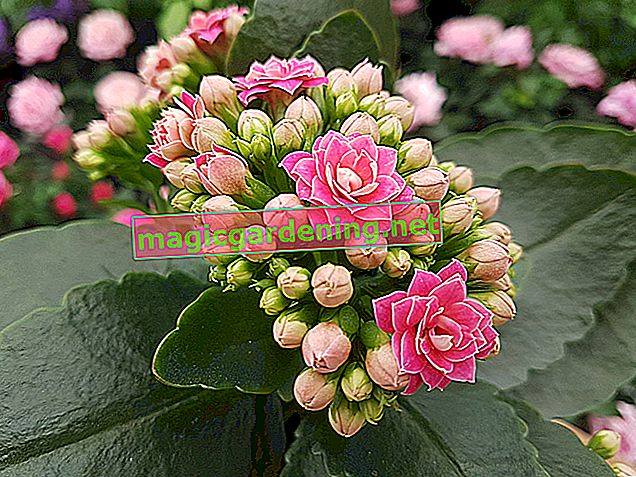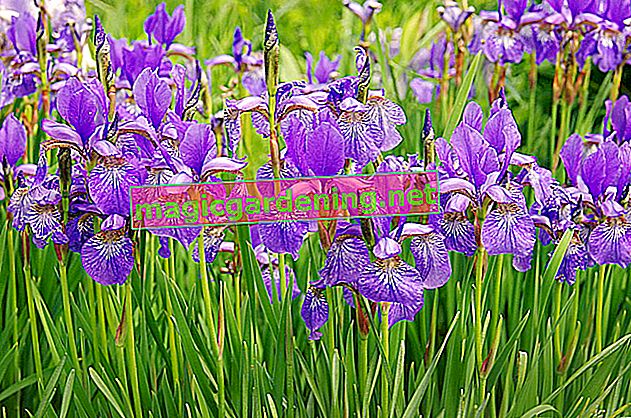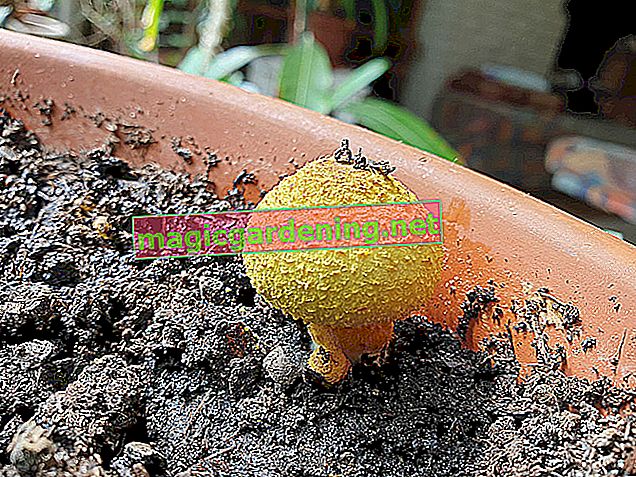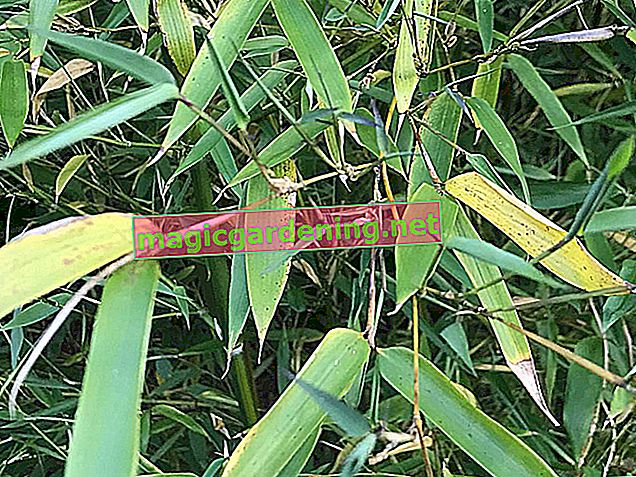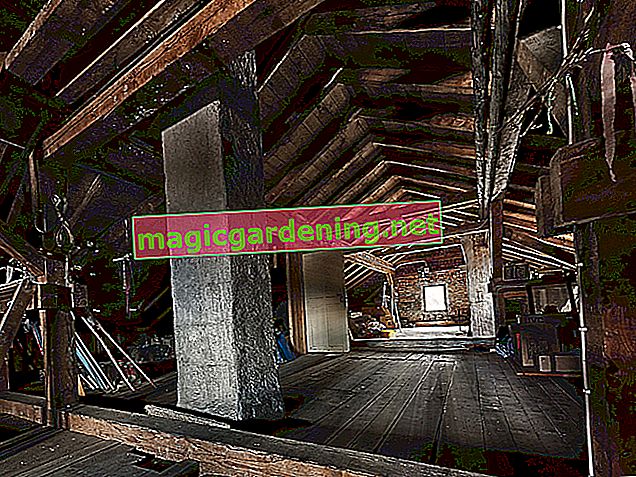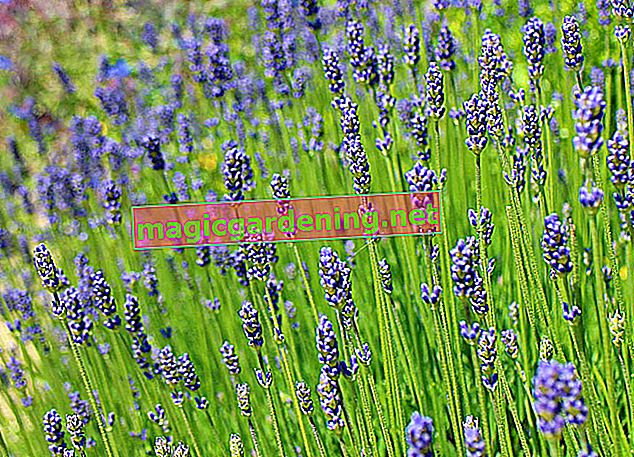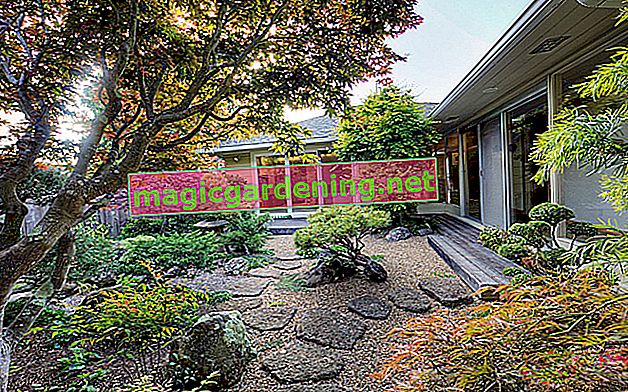
Watering and watering bamboo - when and how?
Can you water a bamboo incorrectly? Yes! As an evergreen, hardy plant, the bamboo is always thirsty. If you give needs-based but unfavorable individual amounts at the wrong time, the plants suffer. Bamboos constantly evaporate moisture through their leaves. If there is not enough water, the plant wilts and the leaves roll. So that the bamboo in the home garden is just as brightly green as in the Asian country of origin, it makes sense to inform yourself about the topic of bamboo watering properly.
also read
- Pour bamboo - know how
- The ideal bamboo location
- Bamboo - properties of the Asian lucky plant
Too wet or too dry? Ask your bamboo, finger, or spade
Your bamboo speaks to you: When it rolls the leaves, it is thirsty! That means watering and watering immediately. With bamboo in a pot or bucket, your finger feels at a depth of 3 cm whether there is a need for water. Use a spade to dig a small hole in the ground for bamboo plants. If the soil is dry to a depth of ten centimeters, it must be watered thoroughly. To do this, depending on the weather, place the hose on the plant for an hour and slowly let the water seep away at low pressure. Watering too briefly only moistens the surface. The general rule for shallow roots is: Better more and not as often than just a little regularly.
Easily transplant bamboo - what should be considered
A giant bamboo can shoot up a full meter in one day and reach up to 30 meters. Your bamboo also wants to go high up or in your neighbor's garden. Whether a clumpy or root-forming bamboo variety - at some point every bamboo becomes too big. The most important questions before you want to repot or transplant a bamboo:
- Does the new location meet the conditions especially for this bamboo variety?
- What is the purpose of the bamboo plant at the new location?
- Is the new space or the vessel big enough?
- How high can the plant grow if the legal limit distances are observed?
If you want to transplant a bamboo professionally, you should also use bamboo-friendly weather, the right season and the full moon. This saves energy and the plant is less stressed.
Can you cut every type of bamboo the same way?
Your bamboo doesn't care how you cut it. Like our hair, it always grows back! Don't be surprised if creatively shaped bamboos get more recognition. They give the garden an artistic flair. Suitable tools and the right time are important for every cutting measure.
The bamboo cutting should be done with the waning moon. Moon gardeners know that the best phase is now to cut grass or branches, weed weeds and prepare compost. You speak of the ripening phase, harvest time and root formation. Because now the power is focused on the earth. This means that the saps of plants, like the seas, are sinking. This way, no sap escapes and the bamboo does not bleed to death.
If grasses are cut on the new moon or seven days after, they will grow faster. The closer to the new moon the better the effect. Cut bamboo at the right time. Then the plant recovers during the summer. Even if individual stalks die - the bamboo plant lives forever. Because it always grows back from its rhizomes. This is why some Asian bamboo groves are over 1000 years old. Isn't it a fascinating idea to be able to plant something forever in your own garden?
Bamboo pests - which pests are the worst?
A bamboo attracts not only birds and beneficial insects but also these dangerous bamboo pests:
- Lice and mites
- Whiteflies and thrips
- Voles
Why do bamboo leaves turn yellow or brown?
Like humans, bamboo turns pale and yellow when something is missing or when it is sick. Yellow leaves on bamboo or brown leaves indicate deficiency symptoms. A few individual discolored leaves, on the other hand, are normal and do not cause panic.
Regular bamboo care ensures healthy growth and prevents pest infestation and diseases.
Fertilize organically or with bamboo fertilizer?
Proper fertilization plays an important role in achieving dense, healthy growth in bamboo. Because the roots of bamboo branch out widely on the surface, nutrients must be directly absorbable in the soil. To fertilize bamboos, it is best to use organic fertilizers or special bamboo fertilizers.
The bamboo regenerates in the winter months. Please do not make the mistake of wanting to give the plant powerful support! On the contrary - give the bamboo its rest. In winter the motto “less is more” counts.
Bamboo in winter - what should be considered?
Hardy or not - how does the bamboo get through ice and snow safely in winter? This is how bamboos overwinter outside and inside.
Tips & Tricks
Good care is rewarded! If your bamboo has developed well, you can simply carefully split the root ball in spring and grow new plants.

